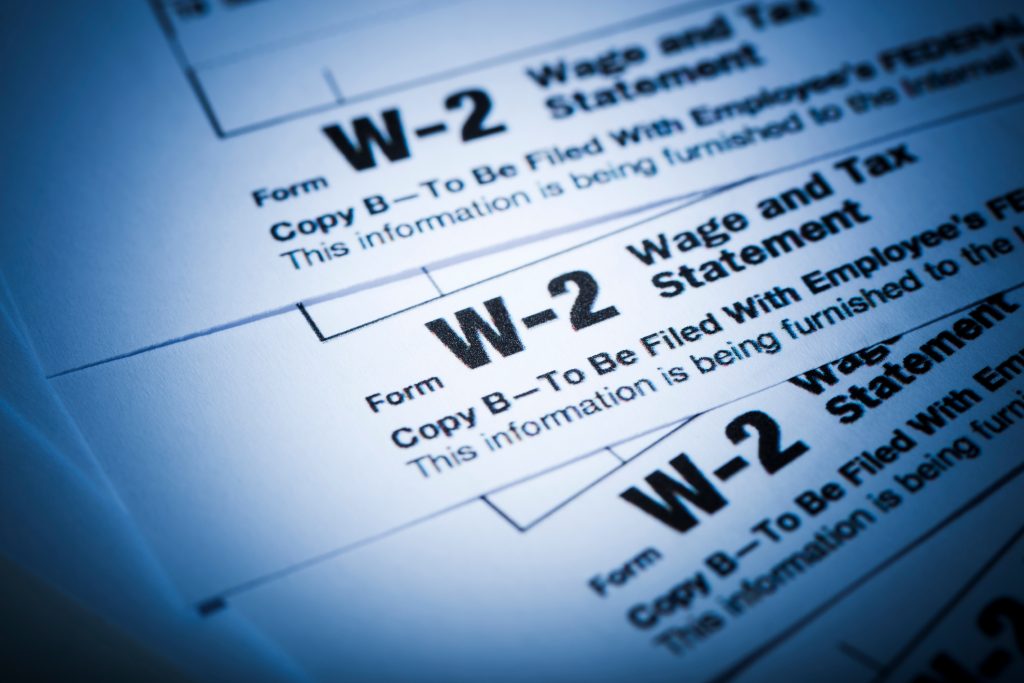
Tax time is here once again. By now, you should have received all of your important tax documents that you will need in order to complete your taxes this year. But where do you start? How do you know what paperwork your accountant will need in order to complete your taxes? Of course, everyone’s tax situation is different, so your accountant may need to request additional paperwork, however, there are some basic documents that you will need in order to get started.
Personal Information
- Social Security Numbers—you probably have your own social security number memorized, but you may not know the social security number for every member of your family, so make sure that you have located social security cards for each member of your family.
- Address—of course you will need to have your current address, but you will also need to give any previous addresses that you lived at during the year to your accountant. This is important because some cities or school districts require you to file and pay tax, some cities offer reciprocity with the city that you work in, and some areas do not have an additional income tax at all. Make sure that you know the specific dates that you lived at a certain address as well—you don’t want to end up paying a full year of income tax to an area if you weren’t living there for the entire year…
Income
- W-2’s and 1099’s are some of the most common income documents that you will receive if you work for an employer or do contract work for an entity.
- If you are self-employed, you will need to gather any ledgers or bank account statements that show your income and expenses.
Mortgage Information
- If you own a home and you have a mortgage on it, you may be able to deduct some or all of the mortgage interest that you pay.
Deductions
- Health Expenses—you may be able to make contributions to a qualified account and utilize those dollars to pay for medical expenses; some items that you pay for using after-tax dollars may be tax deductible.
- Charitable Giving—Some charitable organizations will send letters to you or give you a receipt for the donations that you give throughout the year—both monetary and non-monetary; if not, put together a list of which organizations you gave to and how much.
- Work or Business Expenses—you may be able to deduct certain work-related expenses that were not reimbursed by your employer.
Real Estate Taxes
- Save your real estate tax bills because you will report that information on your taxes as well. Some or all of the amount that you pay in real estate taxes may be deductible.
Estimated Payments
- Do you make estimated payments throughout the year on taxes that you expect to owe? Keep track of the amounts that you pay and the dates that you paid the estimates.
Other documents you may need:
- Interest income, capital gains, alimony, child support, government payments, retirement account distributions
How to organize to make gathering these tax documents easier
Perhaps you are struggling to put everything together this year—and this year might take some time to get things gathered. However, if you start now, you can get things organized for next year. Utilize the list above to think of things throughout the year that you will need for filing your taxes each year. Here are some organizing tips to get you started:
Start a folder—gather any important information throughout the year and put it in a file folder or accordion file so that everything is in one place and ready for you when tax time rolls around next year.
Keep a paper trail—if you have charitable donations of cash or non-monetary items, medical or health expenses, or work-related expenses that are not reimbursed by your employer, make sure to write it down with the amount, date, and organization that your donation was given to. When possible, you may want to use a checking account or specific credit card to record those transactions and create a paper trail.
Keep a copy of previous tax returns—Hopefully, you won’t be audited, but just in case, you will want to hold on to a copy of your tax return and any supporting documents that were used to input information on your return. The Internal Revenue Service suggests keeping copies of tax returns and supporting documents for three to seven years, depending on the situation.
PLEASE NOTE: The information being provided is strictly as a courtesy. When you link to any of these web-sites provided here, you are leaving this site. Our company makes no representation as to the completeness or accuracy of information provided at these sites. Nor is the company liable for any direct or indirect technical or system issues or any consequences arising out of your access to or your use of third-party technologies, sites, information and programs made available through this site.
Finivi Inc. does not provide tax and legal advice. Please consult your tax advisor or attorney for such guidance.












You must be logged in to post a comment.